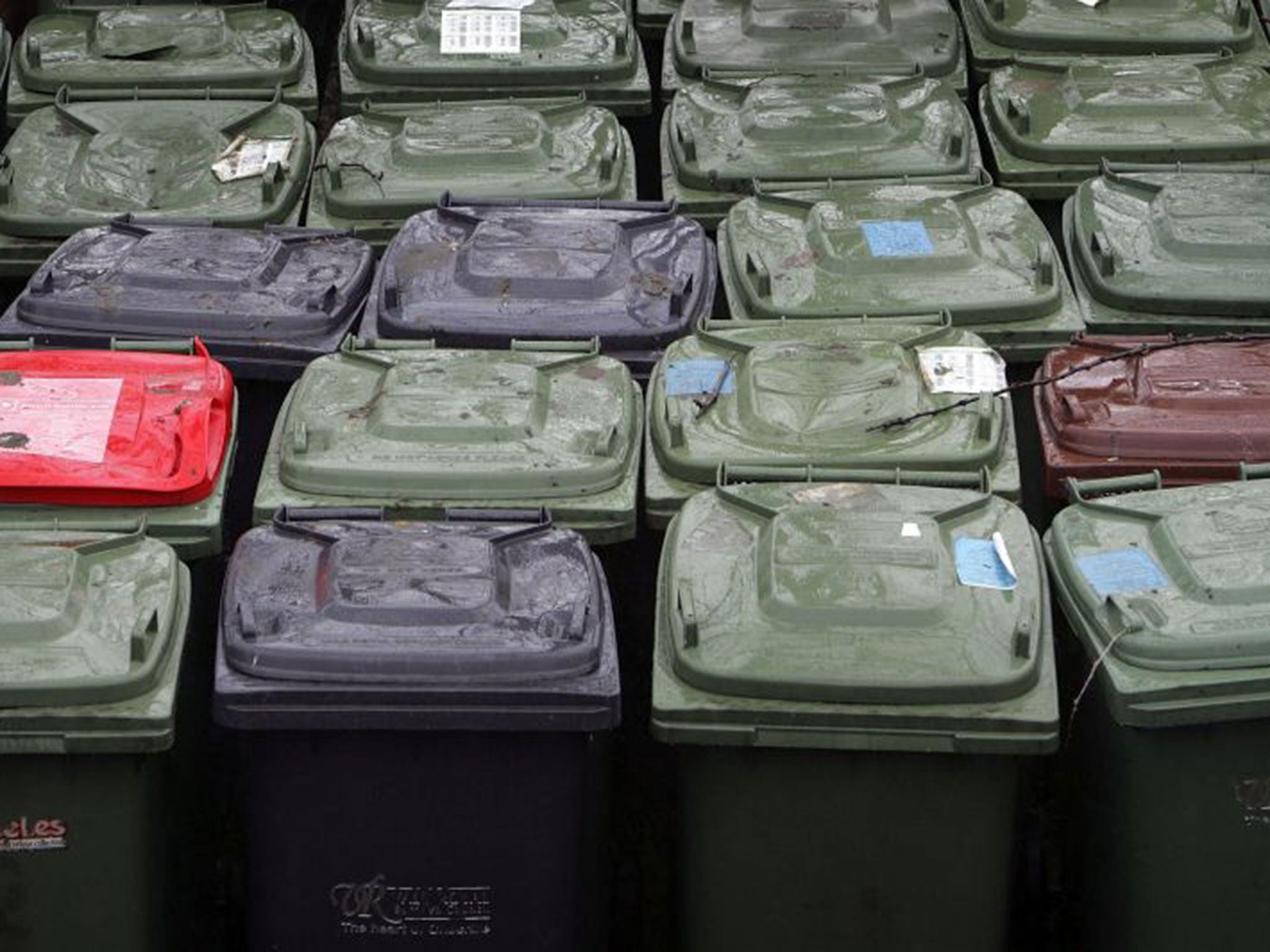Totally rubbish: Britain risks turning into a nation of wasters
Are you suffering from green-bin fatigue? As Britain's recycling rate looks set to fall, Simon Usborne examines why we risk turning into a nation of wasters

For evidence that confusion about dustbins may have reached some sort of tipping point, note two things: the worrying report this week that an unprecedented fall in recycling, blamed on "green fatigue", could mean Britain misses EU waste targets; and the results of a Google News search for "recycling bins".
Bin wars have broken out in parts of Brighton, Brighton and Hove News reports, between residents who welcome the removal of individual recycling bins from pavements and those who can't be bothered to walk to the new communal bins (which have also occupied valuable parking spaces).
Derry City Council is "bin laden", the Belfast Telegraph reports (too soon for Osama puns?) after stockpiling thousands of brown recycling bins for two years while it buys trucks that are equipped to collect them. This, despite the city's perhaps unsurprising position at the bottom of Northern Ireland's ranking for recycling.
A whiff of good news in Newport, where the introduction of smaller bins has nudged residents into throwing away less rubbish, and recycling more. But in Wolverhampton – scandal! Almost 25,000 recycling bins were left unemptied on the pavement during a six-month period because they were found to contain the wrong kind of rubbish, including food waste and – hold your nose – disposable nappies.
And so it goes on, and on – pages of results that reveal a nation of keen recyclers let down by councils, councils let down by lazy recyclers and – above all – confusion. All of which is bad for Britain. According to Sita UK, which has contracts to take away rubbish from 12 million households, recycling rates risk falling this year for the first time.
In 2000, England recycled just 11 per cent of rubbish. By 2012 the figure had risen steadily to 43 per cent, but crept up only 0.2 per cent last year (Scotland recycles 41 per cent of waste, while Wales leads the way on 57 per cent). Official figures for this year aren't out until autumn, but Sita believes that they will reveal a decline. This makes heavy EU fines more likely if Britain fails to hit the target of 50 per cent recycling by 2020.
What is to be done? Sita blames the proliferation of multi-coloured bins for different sorts of rubbish, putting off lazier waste- makers. Mixed recycling always leads to higher rates, the company has observed, but green campaigners warn that councils can be just as disinclined or unable to sort waste as we are, meaning more ends up in landfill.
But a word of sympathy for local authorities, which face growing demands to recycle more while also seeing budgets cut dramatically. New EU guidance due to come into force in January will require them to do more to collect separated waste, which means more bins, a measure that even the best-performing councils question, and not only because of the cost.
Keith Gordon, who is in charge of environment matters at Rochford District Council in Essex, which issues three bins per household and recycles 66 per cent of waste – more than any other local authority– told the Daily Telegraph: "Do you want to get to the point where you have six bins or six boxes? It can look like you have a line of Daleks all the way down the road."
Unsightly bins are already so unpopular in some suburban and rural parts of the country that it's a wonder Ukip didn't make bin reduction one of its key policies before last week's European elections ("Je refuse! could have been its answer to rubbish demands from Brussels). But whether or not councils decide more bins are the way to higher rates, recycling will always be a matter of individual will. Don't want loads of bins? Take your waste to communal ones. Hate food caddies? Compost your own leftovers. Ultimately: waste less, care more.
Subscribe to Independent Premium to bookmark this article
Want to bookmark your favourite articles and stories to read or reference later? Start your Independent Premium subscription today.

Join our commenting forum
Join thought-provoking conversations, follow other Independent readers and see their replies